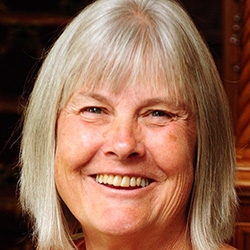

Search Results: power
-
Ask the Trainer: Guidance for NVC groups on when and how to make requests, especially negative ones.
-
Ask the Trainer: Exploring how unconscious motivations influence the needs we identify and express.
-
Explore what blocks us from speaking truth and how honesty builds trust and growth.
-
Ask the Trainer: Get guidance on working with enemy images and exercises that bring relief.
-
The wisdom which NVC is based on is as old as humanity itself. This telecourse recording draws insights from NVC’s elder siblings of Taoism, Buddhism and indigenous culture to offer new ways of approaching common NVC ‘stuck’ places.
-
Bask in this telecourse recording with Kathleen Macferran and explore ways to nurture and maintain greater depths of joy by focusing on gratitude. The reward? To increase your ability to live fully present to the joy in life, even in the midst of pain.
-
Workplace relationships are complex. Each employee brings their unique self to work. Their background, perspective, emotional triggers, and working style. Add to this the dynamics of power relations, and the fact that often workplace communication now takes place at our computer keyboards rather than face-to-face. Sylvia Haskvitz offers practical tips to make today's complex workplace relationships more satisfying and effective.
-
Expressing ourselves honestly is sometimes scary because we can't predict where the conversation will go after we've made ourselves vulnerable. This recording will demonstrate how the power of our honesty is enhanced by ending on a clear and present request.
-
Miki works with a course participant to transform begrudging attendance at a mandatory meeting into the possibility for collaboration, more connection where little is expected and focus on clarity of purpose for meeting in the first place.
-
How can we live life fully connected to the core values of nonviolence, no matter the circumstances, internal or external? Join Miki Kashtan as she shares the 17 core commitments that have served as a compass for herself and hundreds of others around the world as well.
-
Learn to recognize four forms of thinking and speaking that are likely to lead to disconnection.
-
Trainer Tip: Find ways to celebrate each day and enrich your life.
-
It can be challenging to tell people that you don’t like a certain behaviour or action of theirs. Even with supportive intentions and compassionate language your message might be difficult for someone to receive. Of course, we are not responsible for others’ reactions, but we are responsible to care about each other, and there are effective ways to express ourselves with more care.
-
In our internal conversations, some voices dominate others, which can leave us feeling fragmented or overwhelmed. But when we dive beneath the surface and really listen to our many parts, we connect vulnerably to our full humanity.
-
Trainer Tip: Mary expands on one of the basic principles of Nonviolent Communication: valuing everyone’s needs equally.
-
Could our "need for autonomy" be getting in the way of "partnership consciousness" (as NVC is sometimes called). Could "autonomy" also block healthy relationships with not only ourselves and with others, but also with the planet? This article invites us to consider how "autonomy" may colour our NVC practice at the peril of our critical values. Values such as our care for impact, shared responsibility, interdependence, compassion, consideration, and more...
-
Trainer Tip: What is motivating your (in)actions? Are you doing something in the name of supporting deeper heartfelt needs, free of judgement or blame? Or are you bringing in consequences based on viewing the other person as having "bad behaviour"?
-
Trainer tip: Empathy can offer profound learning opportunities to children, expand their feelings and needs vocabulary, and teach them the positive results of valuing everyone’s needs. Read on for a story that illustrates this.
-
Trainer tip: In every interaction, we have a choice of responding in one of these four ways: judge/blame self, Judge/blame others, empathize with self, and/or empathize with others. The goal is to make a conscious choice about our response. Notice the choices you have when you receive someone’s communication today.
-
Trainer Tip: NVC-based social change naturally emerges from “a certain kind of spirituality”, a quality of spiritual clarity. Intuitions and impulses arising from spiritual clarity are more likely to support sustainable systems. Read on for how to bring more of this in, and ways to transform your complaint into commitment.

Quick Links
Subscription Preferences
Stay In Touch!
Looking for ways to keep up with NVC Academy news, get special offers, free resources, or words of inspiration? Here are five ways to stay engaged:




















